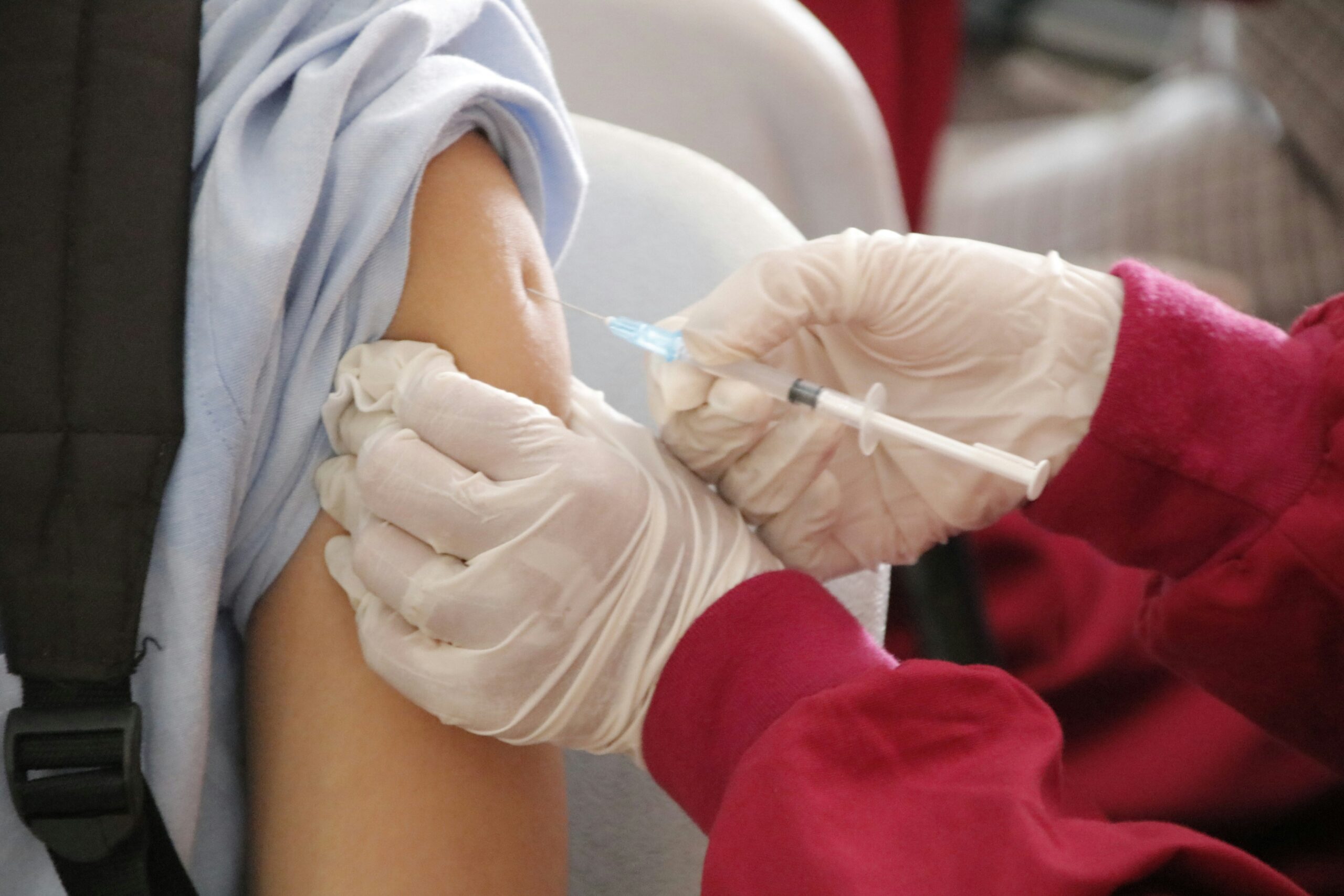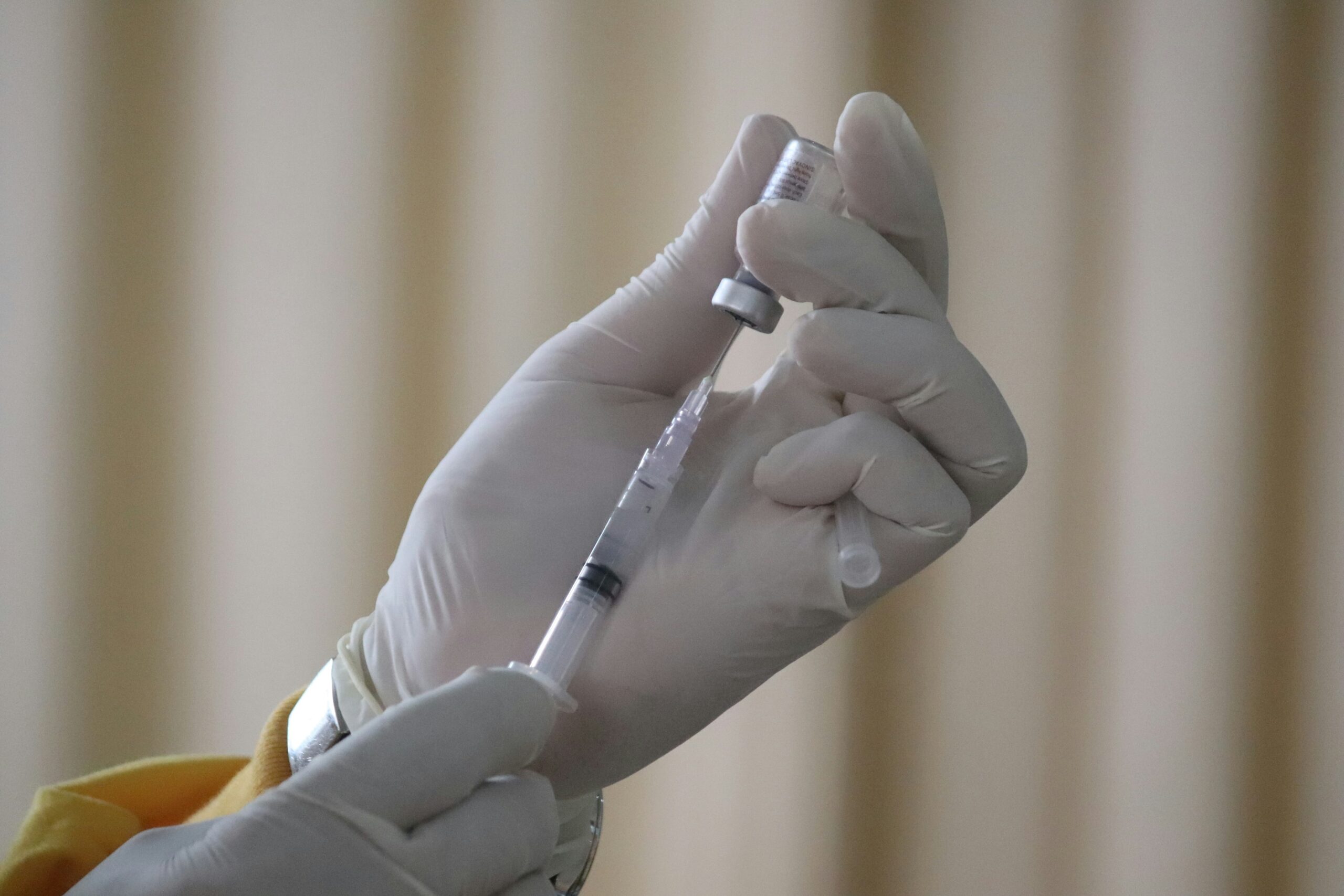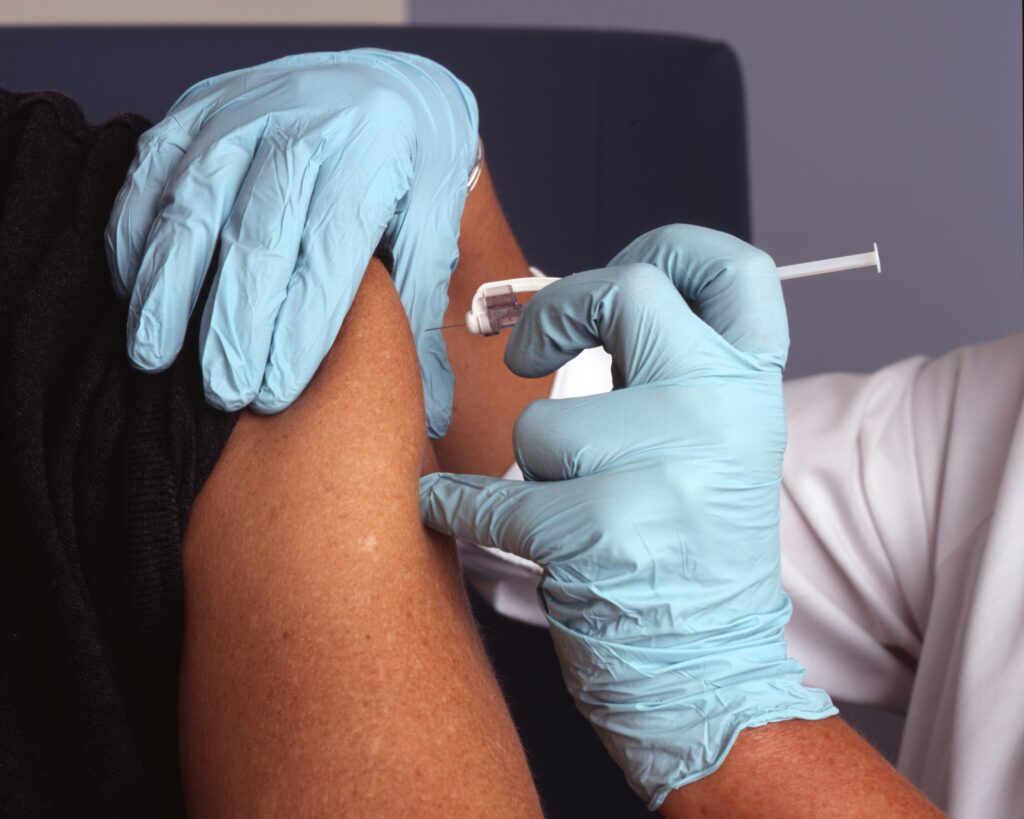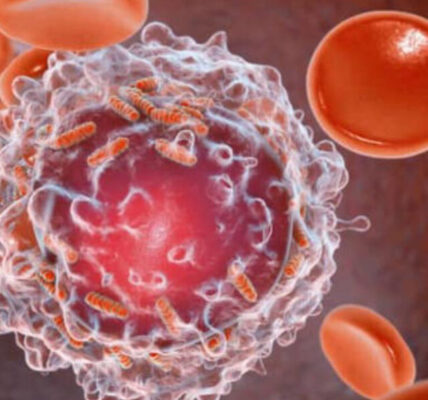Title: “Revolutionizing Cancer Treatment: The Power of Off-the-Shelf KRAS Vaccines”
 In the realm of cancer treatment, a groundbreaking development is on the horizon. A recent study co-led by experts at Memorial Sloan Kettering Cancer Center (MSK) unveils the potential of a new vaccine as an off-the-shelf solution for certain patients battling pancreatic or colorectal cancer. This innovative vaccine targets tumors harboring mutations in the KRAS gene, a notorious driver behind many cancer types.
In the realm of cancer treatment, a groundbreaking development is on the horizon. A recent study co-led by experts at Memorial Sloan Kettering Cancer Center (MSK) unveils the potential of a new vaccine as an off-the-shelf solution for certain patients battling pancreatic or colorectal cancer. This innovative vaccine targets tumors harboring mutations in the KRAS gene, a notorious driver behind many cancer types.
Not only does it offer a glimmer of hope for individuals who have exhausted conventional treatment options, but it also promises a paradigm shift in cancer care, making treatment more accessible, efficient, and cost-effective.
Dr. Eileen O’Reilly, a distinguished medical oncologist and pancreatic cancer specialist, shares her insights into this groundbreaking vaccine. She underscores its potential to transform the landscape of cancer treatment, providing a ray of hope for those facing the daunting challenges of pancreatic and colorectal cancer recurrence.
The vaccine’s approach differs significantly from conventional personalized mRNA vaccines, which are tailored to each patient’s unique genetic makeup. While both types of vaccines are administered post-surgery to mitigate the risk of cancer recurrence, the off-the-shelf KRAS vaccine offers distinct advantages in terms of accessibility and scalability.
Let’s delve deeper into the key findings of the study and explore how off-the-shelf KRAS vaccines stand poised to revolutionize cancer treatment:
Unlocking the Potential: Key Insights from the Study
The phase 1 trial, encompassing 25 patients with pancreatic or colorectal cancer harboring specific KRAS mutations, yielded promising results. The vaccine demonstrated safety and efficacy, igniting hope among patients and clinicians alike.
 Notable highlights from the study include:
Notable highlights from the study include:
- Immune Response Activation: The vaccine effectively stimulated the patient’s immune system, triggering the production of cancer-fighting cells. Remarkably, 84% of patients exhibited the desired immune response, with activated T cells targeting KRAS-mutated cancer cells.
- Tumor DNA Reduction: Encouragingly, 84% of patients experienced a reduction in tumor DNA circulating in the bloodstream, signifying a potential suppression of cancer progression. In 24% of cases, tumor DNA was entirely absent, hinting at the vaccine’s profound impact on disease control.
- Prolonged Relapse-Free Survival: Patients displaying a robust T cell response witnessed a prolonged period of remission, highlighting the vaccine’s therapeutic efficacy in curbing cancer recurrence.
These findings underscore the transformative potential of off-the-shelf KRAS vaccines in reshaping the treatment landscape for pancreatic and colorectal cancer patients.
Off-the-Shelf vs. Personalized mRNA Vaccines: Bridging the Gap
A critical aspect of this breakthrough lies in its distinction from conventional personalized mRNA vaccines. While both approaches aim to bolster the immune system’s response against cancer cells, they differ significantly in their methodology and practicality.
- Off-the-Shelf Vaccines:
- Pre-manufactured and readily available, off-the-shelf KRAS vaccines offer a streamlined and cost-effective alternative to personalized mRNA vaccines.
- Their batch production enables swift administration to patients, mitigating delays and reducing logistical complexities.
- Targeting KRAS mutations, these vaccines hold promise as a universal solution for a diverse array of cancer types, including pancreatic and colorectal cancers.
- Personalized mRNA Vaccines:
- Tailored to each patient’s unique genetic profile, personalized mRNA vaccines harness the body’s immune system to recognize and combat cancer cells.
- While inherently promising, personalized vaccines pose logistical challenges, including prolonged production timelines and heightened costs.
Significance and Future Implications: Charting a New Course in Cancer Care
 The emergence of off-the-shelf KRAS vaccines heralds a new era in cancer treatment, marked by accessibility, efficacy, and affordability. By harnessing the body’s immune response against cancerous cells, these vaccines offer renewed hope for patients confronting the formidable challenges of pancreatic and colorectal cancer recurrence.
The emergence of off-the-shelf KRAS vaccines heralds a new era in cancer treatment, marked by accessibility, efficacy, and affordability. By harnessing the body’s immune response against cancerous cells, these vaccines offer renewed hope for patients confronting the formidable challenges of pancreatic and colorectal cancer recurrence.
Dr. O’Reilly, echoing sentiments shared by many in the medical community, emphasizes the profound impact of this breakthrough. She underscores the importance of exploring diverse avenues for activating immune cells against pancreatic cancer, paving the way for enhanced treatment modalities and improved patient outcomes.
In conclusion, the journey towards combating cancer is fraught with challenges, yet imbued with limitless possibilities. The advent of off-the-shelf KRAS vaccines represents a pivotal milestone in this ongoing battle, offering a beacon of hope for millions affected by pancreatic and colorectal cancers worldwide.
As researchers and clinicians continue to unravel the complexities of cancer biology, one thing remains clear: the power of innovation and collaboration knows no bounds. Together, we stand on the cusp of a transformative era in cancer care, where hope triumphs over adversity, and healing becomes a tangible reality for all.



